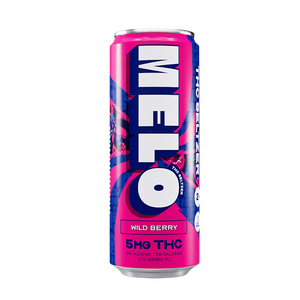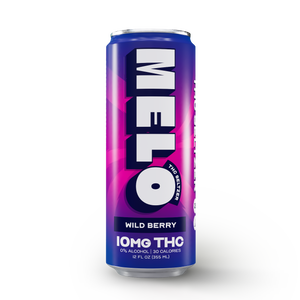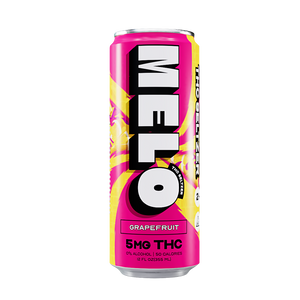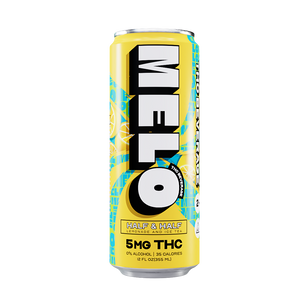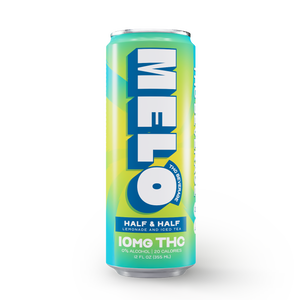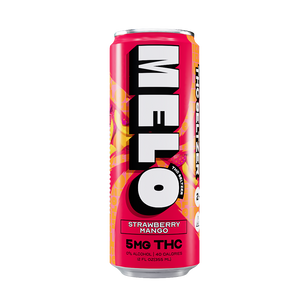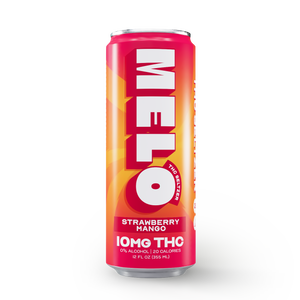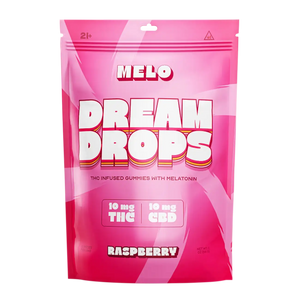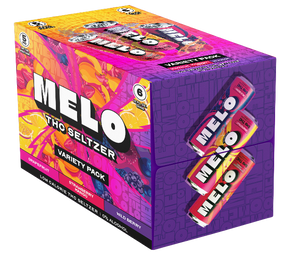

Exploring the Science and Artistry Behind THC Seltzer: Emulsions, Preservation, Homogenization, and Stability.
Common Types of Emulsions
When it comes to THC Seltzer, one key aspect to understand is the different types of emulsions commonly used in its production. Emulsions are crucial in ensuring that the THC oil is evenly distributed throughout the beverage, providing consumers with a consistent and enjoyable experience.
One common type of emulsion used in THC Seltzer is oil-in-water (O/W) emulsion. In this type of emulsion, THC oil is dispersed as tiny droplets within a continuous phase of water.
This allows easy blending with other ingredients and ensures the THC remains stable throughout the beverage. O/W emulsions are popular for creating a smooth and uniform texture in beverages.
On the other hand, water-in-oil (W/O) emulsions are less commonly used but still have their place in specific formulations of THC Seltzer. In W/O emulsions, water droplets are dispersed within a continuous oil phase.
This emulsion type can provide unique mouthfeel and flavor profiles to the beverage, making it a choice for producers looking to differentiate their products. Multiple emulsion systems, such as water-in-oil-in-water (W/O/W), are also explored in the production of THC Seltzer.
These complex systems involve multiple layers of emulsions stacked on each other, offering enhanced stability and encapsulation properties for sensitive ingredients like THC. While more intricate, various emulsion systems can produce beverages with superior texture and shelf life.
An essential part of creating these emulsions is the homogenization process—an important step in ensuring that the oil droplets are uniformly dispersed throughout the liquid phase. The homogenization process involves subjecting the mixture to high pressure or shear forces to break down larger droplets into smaller ones, resulting in a more stable and consistent product overall.
Research on THC stability in different liquids has shown that choosing the right type of emulsion can significantly impact how long the product remains potent and effective. Understanding these common emulsions gives producers valuable insight into crafting high-quality THC Seltzer that meets consumer expectations for taste, texture, and potency levels.
Benefits and Drawbacks of Homogenization
When it comes to crafting the perfect THC seltzer, one key aspect that can make a world of difference is homogenization. This process involves breaking down the cannabis oil into tiny droplets and dispersing them evenly throughout the liquid, resulting in a consistent and potent product.
Let's examine the benefits and drawbacks of homogenization in the context of creating THC-infused seltzers. Homogenization is crucial in ensuring that each sip of your THC seltzer delivers a consistent dose of cannabinoids.
By breaking down the cannabis oil into smaller droplets, homogenization helps prevent separation and ensures that the THC is evenly distributed throughout the beverage. This enhances the overall consumer experience and provides greater control over dosing, making it easier to achieve desired effects with each serving.
However, it's important to note that homogenization is not without its trade-offs. Some argue that it can lead to a loss of terpenes and other volatile compounds present in cannabis oil. These compounds are the reason for the unique flavors and effects of different strains, making their preservation a crucial consideration in producing THC seltzers.
Although homogenization can enhance uniformity and the body's ability to absorb nutrients, it is crucial to evaluate whether sacrificing flavor complexity is a compromise you are willing to make for your product. Additionally, there are concerns about how homogenization could affect the product's shelf life.
While emulsions created through this process may initially appear well-mixed, there is a risk of phase separation over time if proper techniques for preserving canned beverages are not employed. Ensuring that your THC seltzer remains homogeneous throughout its shelf life requires careful consideration of factors such as pH levels, temperature control, and packaging materials.
Research on THC stability in different liquids has shown that factors such as viscosity and particle size distribution can influence cannabinoid retention over time. Homogenization can significantly enhance stability by reducing particle size variability and promoting uniform dispersion within the liquid matrix.
Manufacturers can maximize product consistency and longevity by optimizing the homogenization process and monitoring key parameters closely. While homogenization offers undeniable benefits for creating uniform THC seltzers with enhanced bioavailability, it's essential to weigh these advantages against potential drawbacks such as flavor loss and stability concerns.
By understanding how different emulsion types and applications impact product quality, manufacturers can make informed decisions about incorporating homogenization into their production processes. Ultimately, achieving a balance between consistency, potency, and sensory appeal is critical to crafting exceptional THC-infused beverages that delight consumers while reliably delivering the desired effects.
Preservation Methods for Beverages in Cans
When preserving beverages in cans, several techniques can be employed to ensure the quality and stability of the product. One common method is pasteurization, where the beverage is heated to a specific temperature for a certain period to kill off harmful bacteria and enzymes that could cause spoilage. This process helps extend the product's shelf life and maintains its freshness.
Filtration is a different method for preserving canned drinks. This process entails passing the liquid through a fine mesh or filter to eliminate any impurities or particles that might impact the taste or quality of the beverage.
This step helps ensure that only pure liquid is canned, reducing the risk of contamination and spoilage. Carbonation is also an effective preservation method for canned beverages, especially THC seltzers.
Carbonation adds a refreshing fizziness to the drink and acts as a preservative by creating an environment that inhibits bacterial growth. The carbon dioxide (Co2) gas dissolved in the liquid helps prevent oxidation and extends the product's shelf life.
Another method used by manufacturers to preserve canned beverages is the use of additives. These substances, such as preservatives or antioxidants, are added to inhibit microbial growth and prevent the deterioration of flavors and colors over time. While some consumers may prefer products without these additives, they are instrumental in maintaining the quality and safety of canned beverages.
While some consumers may prefer products without added preservatives, these compounds play a crucial role in maintaining the quality and safety of canned beverages. Overall, preservation methods for beverages in cans play a role in ensuring that THC seltzers remain fresh, flavorful, and safe for consumption.
By employing techniques such as pasteurization, filtration, carbonation, and additives, manufacturers can extend the shelf life of their products while maintaining their quality standards. These methods help protect against spoilage and ensure that consumers can confidently enjoy their favorite THC seltzers.
Scientific Studies on THC Stability in Various Liquids
When it comes to THC stability in various liquids, scientific studies have delved deep into understanding how this potent cannabinoid behaves in different environments. One key aspect researchers have explored is the impact of different emulsion types on the stability of THC. Emulsions play a crucial role in suspending THC effectively in beverages, ensuring even distribution and consistent potency.
The research on THC stability in various liquids has practical implications. It has shown that the type of emulsion used can significantly affect the longevity and potency of THC. For instance, oil-in-water emulsions tend to be more stable for cannabinoids like THC compared to water-in-oil emulsions.
This is due to the nature of cannabinoids being hydrophobic, thus dissolving better in oil-based solutions. Another intriguing finding from scientific studies is how homogenization processes can influence the stability of THC in liquids.
Homogenization is a key process in the production of cannabis-infused beverages. It involves breaking down cannabis extracts into smaller particles to improve their dispersion within the liquid matrix. Studies have indicated that proper homogenization can enhance the bioavailability and stability of THC in beverages, leading to more consistent effects for consumers.
Moreover, research has also focused on comparing the stability of THC in different types of liquids, such as carbonated versus non-carbonated beverages. The presence of carbonation can sometimes pose challenges for preserving cannabinoids like THC due to changes in pH levels and increased reactivity with air.
Understanding how these factors interact with THC is crucial for developing stable and potent cannabis-infused drinks. Techniques for preserving canned beverages containing THC have been a subject of interest among researchers aiming to prolong shelf life without compromising product quality.
Studies have explored methods such as pasteurization, cold sterilization, and using antioxidants to prevent the degradation of cannabinoids over time. By implementing these preservation techniques effectively, producers can ensure that consumers enjoy a consistent and potent experience with each sip.
Scientific studies on THC stability in various liquids provide valuable insights into optimizing the formulation and preservation of cannabis-infused beverages like THC seltzer. Manufacturers can create products that deliver reliable doses of THC while maintaining quality and freshness over time by considering factors such as emulsion types, homogenization processes, liquid composition, and preservation techniques.
Conclusion
After diving into the world of THC Seltzer, we've explored the fascinating realm of emulsions and how they play a crucial role in creating this trendy beverage. From oil-in-water to water-in-oil emulsions, each type brings its own unique characteristics to the table. Understanding these different emulsion types and their applications grants us a deeper appreciation for the complexity behind every sip of THC-infused seltzer.
As we delve into the preservation techniques for canned beverages, we uncover a world of meticulousness. The science of canning, the methods of pasteurization and cold filling, all contribute to the art of ensuring your favorite THC Seltzer stays fresh and potent. This level of detail in maintaining beverage quality over time commands our respect.
The homogenization process takes center stage in the quest for a smooth, consistent texture in THC Seltzer. By breaking down fat molecules and creating a uniform mixture, homogenization not only enhances the taste but also the visual appeal of these refreshing drinks. Its importance in the production of THC Seltzer cannot be overstated.
Through exploring this process and its impacts on beverage quality, we've come to appreciate the artistry behind crafting a genuinely exceptional seltzer experience. Our journey through research on THC stability in various liquids has shed light on the intricate dance between cannabinoids and different beverage mediums.
From carbonation levels to pH balances, each factor plays a crucial role in maintaining THC potency over time. By examining these scientific studies, we've gained valuable insights into how manufacturers can optimize their formulations for maximum stability and efficacy.
Our deep dive into the world of THC Seltzer has revealed a vibrant tapestry of science, artistry, and innovation. As we raise our glasses to toast this exciting beverage trend, let's embrace the endless possibilities that lie ahead in this rapidly growing industry.
With each fizzy sip of THC-infused goodness, let's savor not just the flavors but also the creativity and dedication that go into crafting these delightful concoctions. Here's to more discoveries, more innovations, and more moments of pure enjoyment – cheers to the bright future of THC Seltzer!
